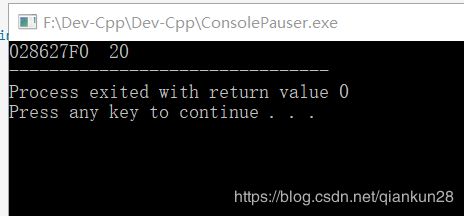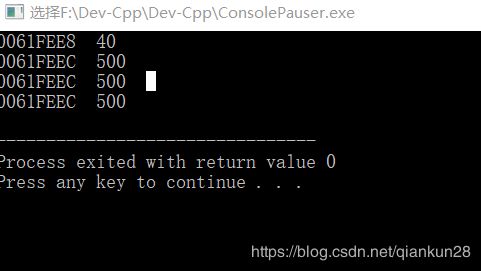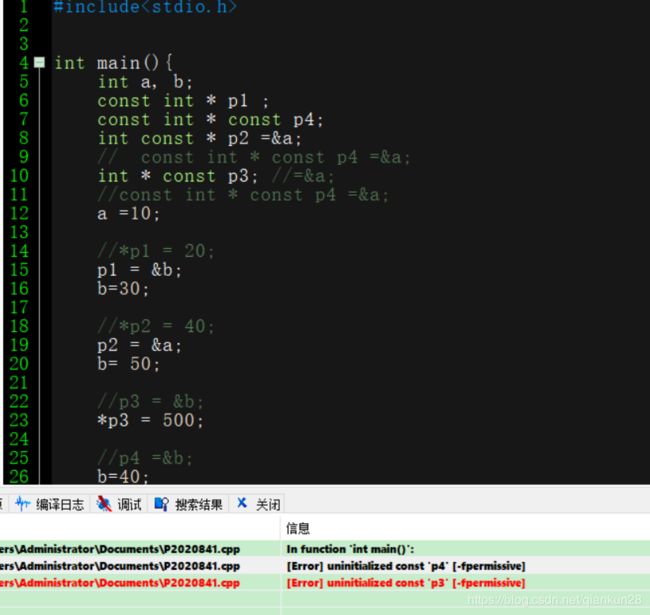C指针之使用const修饰指针变量-位置不同意义不同、引用传值
#include
#include
====================================================以下引用
版权声明:本文为博主原创文章,遵循 CC 4.0 BY-SA 版权协议,转载请附上原文出处链接和本声明。
本文链接:https://blog.csdn.net/liu10904748/article/details/106873780
一、c语言中const修饰普通变量和指针、指针变量
1、const修饰普通变量,结果为定义了一个常量,但是这个常量可以通过指针修改
// 定义了一个常量a
const int a = 10;
// 通过指针修改常量a
int * p = &a;
*p = 13;
printf("%d\n", a);
printf("%d\n", *p);
2、const修饰int *类型,不能改变指针指向的内存单元的值,可以改变指针指向的内存单元
int a = 10;
int b = 20;
const int * p;
p = &a;
// *p = 100; // 这句话会报错
p = &b;
printf("%d\n", *p);
3、const修饰指针变量p,不能改变指针指向的内存单元,可以改变指针指向的内存单元的值
int a = 10;
int b = 20;
int * const p = &a;
// p = &b; // 会报错
*p = 120;
printf("%d\n", a);
printf("%d\n", *p);
4、const既修饰int *类型,又修饰指针变量p,既不能改变指针指向的内存单元,又不能改变指针指向的内存单元的值
int a = 10;
int b = 20;
const int * const p = &a;
// p = &b; // 会报错
// *p = 50; // 会报错
https://blog.csdn.net/liu10904748/article/details/106873780?utm_medium=distribute.pc_relevant_t0.none-task-blog-OPENSEARCH-1.edu_weight&depth_1-utm_source=distribute.pc_relevant_t0.none-task-blog-OPENSEARCH-1.edu_weight

